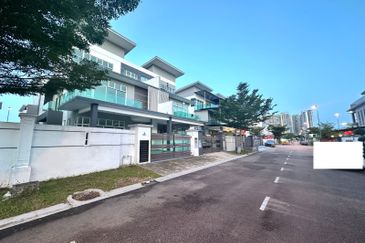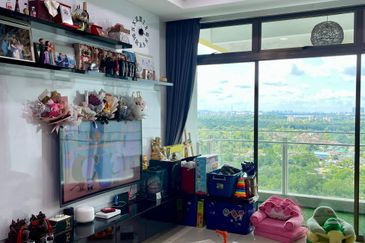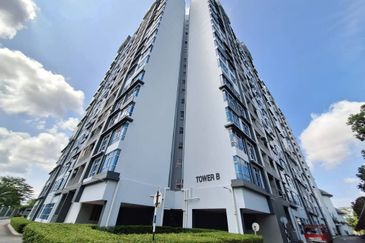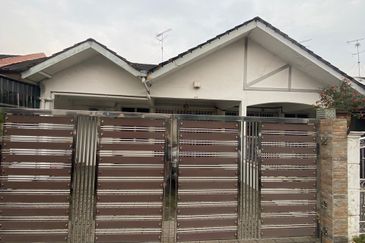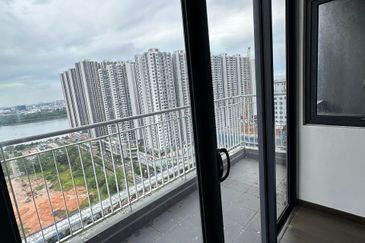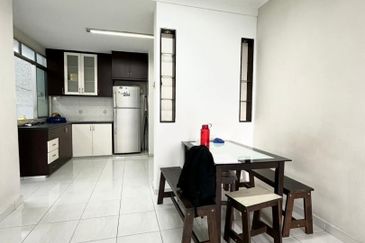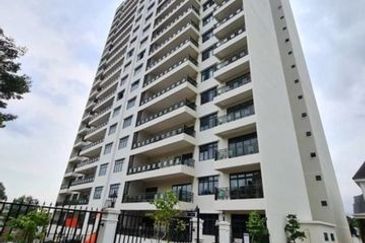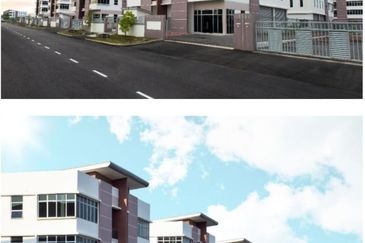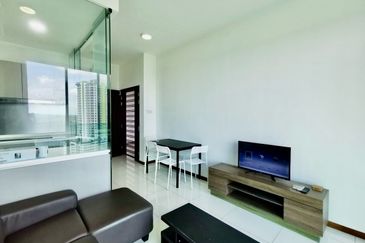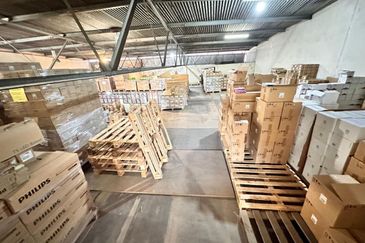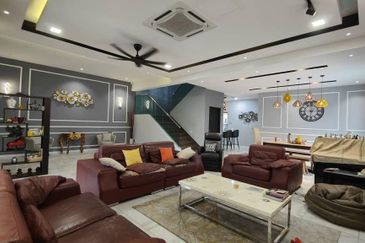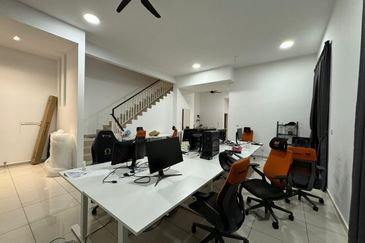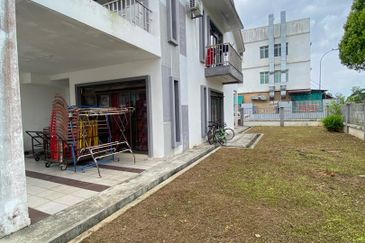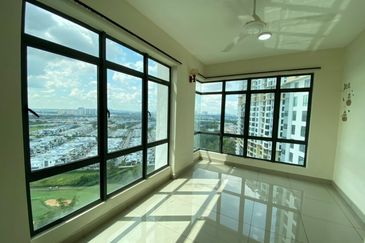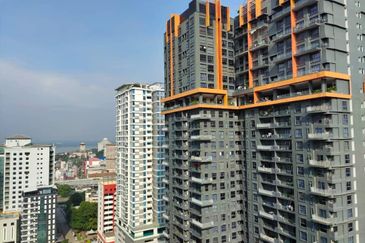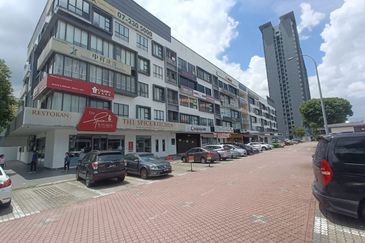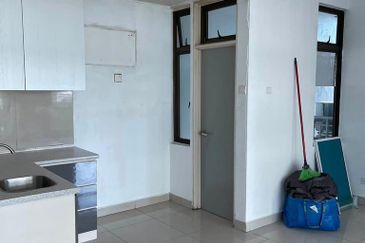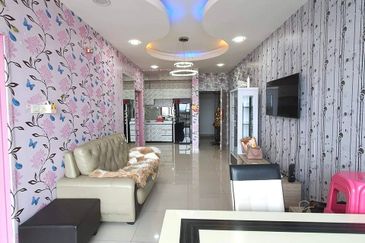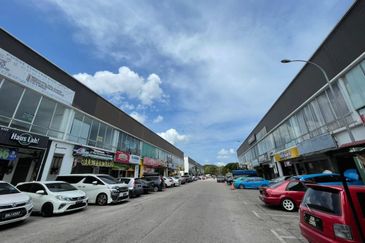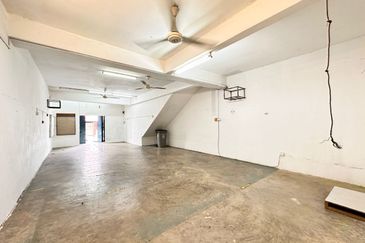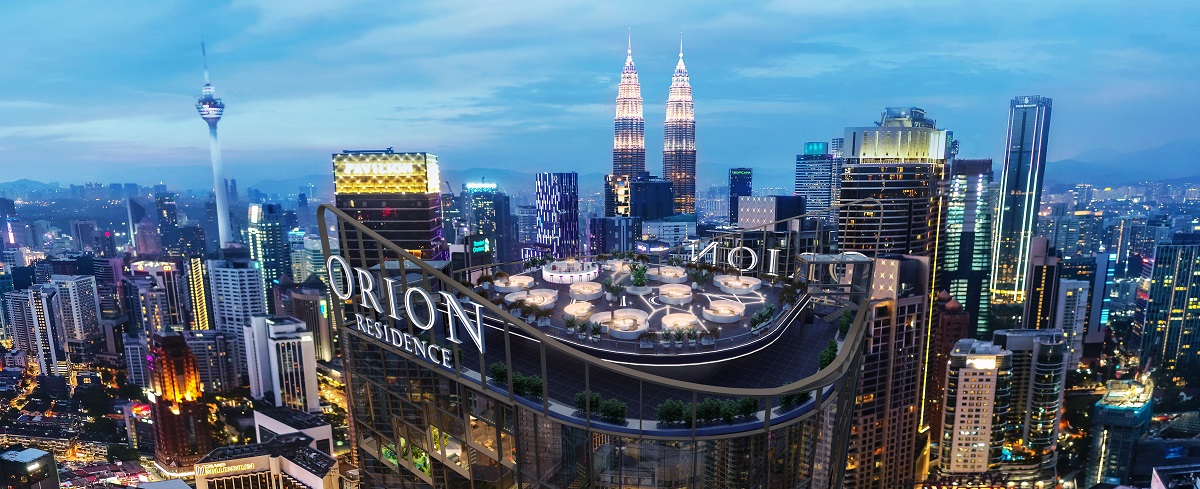HONG KONG: So much for cooling the market. China Vanke, the China's largest listed property developer, said it pulled in a record 11.9 billion yuan (RM5.45 billion) in sales last month.
Sales in Shenzhen soared by 84%, in Guangzhou they were up 56%, and there were steep rises in Shanghai (31%) and Beijijing (23%).
Two Hong Kong-listed China developers said combined sales for August were close to 10 billion yuan.
The renewed boom has prompted fears that Beijing may be lining up new austerity measures.
The rising sales belie fears that the world's second-biggest economy is slowing due to tighter lending to the real estate sector. Ironically, earlier cooling measures may have had the unintended effect of boosting sales by making homes more affordable.
"This may trigger the introduction of stricter enforcement of existing measures," said Lee Wee-liat, regional property research head at Samsung Securities. "If prices continue to grow, the government may introduce a property tax in one or two cities or even tighten credit conditions for developers as a way to reduce the asset bubble."
Surging prices - which threatened to put property out of the reach of the growing middle class - forced the central government to introduce a series of cooling measures in April.
Home values in the biggest cities soared last year, with prices in Shenzhen surging 95%, Beijing rising 88%, Shanghai 43% and Guangzhou 41%.
The government responded by increasing the minimum down payment required on investment homes and raising lending rates loans. It also banned mortgages on purchases of a third property and imposed residency requirements on buyers.
The austerity measures initially had a big impact, with property sales falling as much as 60% in major cities. However, transactions picked up in July before getting a full head of steam in August.
China Overseas Land and Investment announced property sales rose 38.7% year on year to HK$5 billion (RM2 billion) last month, while Evergrande Real Estate achieved 4.44 billion yuan property sales revenue, up 51.9% from a year earlier. Samsung's Lee attributed the rebound to the release of pent-up demand, the diminishing effect of the policy tightening and developers being more flexible on prices.
"Some of the demand was held back temporarily as buyers waited" to see if prices would drop further, he said. But given renewed demand some developers, such as China Vanke and Evergrande, had started to raise prices and scrap discounts.
Meggie Qin, head of research in Beijing for Jones Lang LaSalle, said some banks in smaller cities were still providing mortgages for buyers of second and third homes.
Property stocks slid yesterday on concern new curbs may be on the way. China Vanke fell 2.39% to 8.57 yuan; Poly Real Estate Group dropped 2.8% to 11.8 yuan.
Sales continued to surge in the first week of this month - which is traditionally a peak time - with 21 out of 35 medium-to-large cities reporting more deals, Lee said. Alan Chiang, head of residential for China at DTZ, said the market was driven by excess liquidity with capital diverted into real estate to hedge against inflation.
Prices in Hong Kong also show no sign of falling despite cooling measures last month. Last Friday a 420 sq ft flat on the Lei Cheng UK Estate in Shum Shui Po sold for HK$1.98 million, or HK$4,700 per sq ft, a record for a public housing flat.
Sales in Shenzhen soared by 84%, in Guangzhou they were up 56%, and there were steep rises in Shanghai (31%) and Beijijing (23%).
Two Hong Kong-listed China developers said combined sales for August were close to 10 billion yuan.
The renewed boom has prompted fears that Beijing may be lining up new austerity measures.
The rising sales belie fears that the world's second-biggest economy is slowing due to tighter lending to the real estate sector. Ironically, earlier cooling measures may have had the unintended effect of boosting sales by making homes more affordable.
"This may trigger the introduction of stricter enforcement of existing measures," said Lee Wee-liat, regional property research head at Samsung Securities. "If prices continue to grow, the government may introduce a property tax in one or two cities or even tighten credit conditions for developers as a way to reduce the asset bubble."
Surging prices - which threatened to put property out of the reach of the growing middle class - forced the central government to introduce a series of cooling measures in April.
Home values in the biggest cities soared last year, with prices in Shenzhen surging 95%, Beijing rising 88%, Shanghai 43% and Guangzhou 41%.
The government responded by increasing the minimum down payment required on investment homes and raising lending rates loans. It also banned mortgages on purchases of a third property and imposed residency requirements on buyers.
The austerity measures initially had a big impact, with property sales falling as much as 60% in major cities. However, transactions picked up in July before getting a full head of steam in August.
China Overseas Land and Investment announced property sales rose 38.7% year on year to HK$5 billion (RM2 billion) last month, while Evergrande Real Estate achieved 4.44 billion yuan property sales revenue, up 51.9% from a year earlier. Samsung's Lee attributed the rebound to the release of pent-up demand, the diminishing effect of the policy tightening and developers being more flexible on prices.
"Some of the demand was held back temporarily as buyers waited" to see if prices would drop further, he said. But given renewed demand some developers, such as China Vanke and Evergrande, had started to raise prices and scrap discounts.
Meggie Qin, head of research in Beijing for Jones Lang LaSalle, said some banks in smaller cities were still providing mortgages for buyers of second and third homes.
Property stocks slid yesterday on concern new curbs may be on the way. China Vanke fell 2.39% to 8.57 yuan; Poly Real Estate Group dropped 2.8% to 11.8 yuan.
Sales continued to surge in the first week of this month - which is traditionally a peak time - with 21 out of 35 medium-to-large cities reporting more deals, Lee said. Alan Chiang, head of residential for China at DTZ, said the market was driven by excess liquidity with capital diverted into real estate to hedge against inflation.
Prices in Hong Kong also show no sign of falling despite cooling measures last month. Last Friday a 420 sq ft flat on the Lei Cheng UK Estate in Shum Shui Po sold for HK$1.98 million, or HK$4,700 per sq ft, a record for a public housing flat.
SHARE

